A black police officer's 2-front battle amid a civil rights movement in America
"A lot of white officers may not understand what you're going through."
As a black police officer, Ryan Tillman has often found himself in a "challenging" position.
As tensions over police brutality reach a fever pitch following the police killing of George Floyd, the young corporal in Chino, California, who has experienced racism and police hostility himself, is caught in the middle of a national debate.
"As an African American police officer, it's different because you almost feel like you're in the middle of it," Tillman told ABC News. "On the one hand, there are a lot of minorities that are speaking out against policing, but then at the same time, you are a police officer … a lot of white officers may not understand what you're going through, so it's challenging."
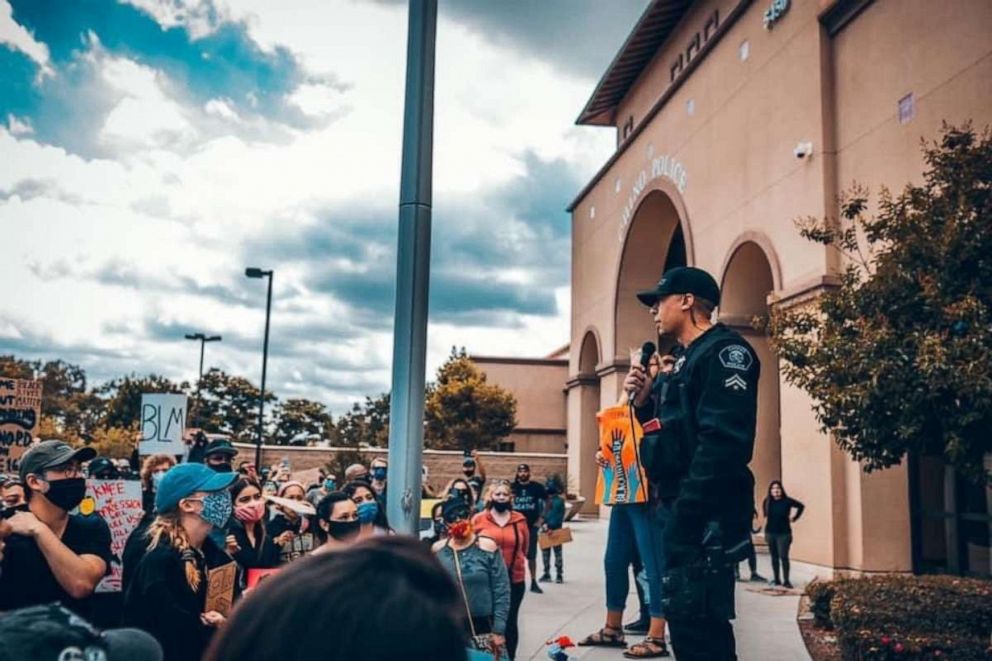
"I've taken it on both sides," Tillman said, but added that he accepts the challenge "optimistically," because it allows him to "be a voice for people that can't be heard."
Amid nationwide protests sparked by the police killing of Michael Brown in Ferguson, Missouri, in 2014, Tillman founded "Breaking Barriers United" -- an organization to bridge the divide between the black community and police through mentorship and diversity programs.
Tillman, who has worked a late-night shift during the protests over the past couple of weeks, described the police killing of Floyd as an "execution."
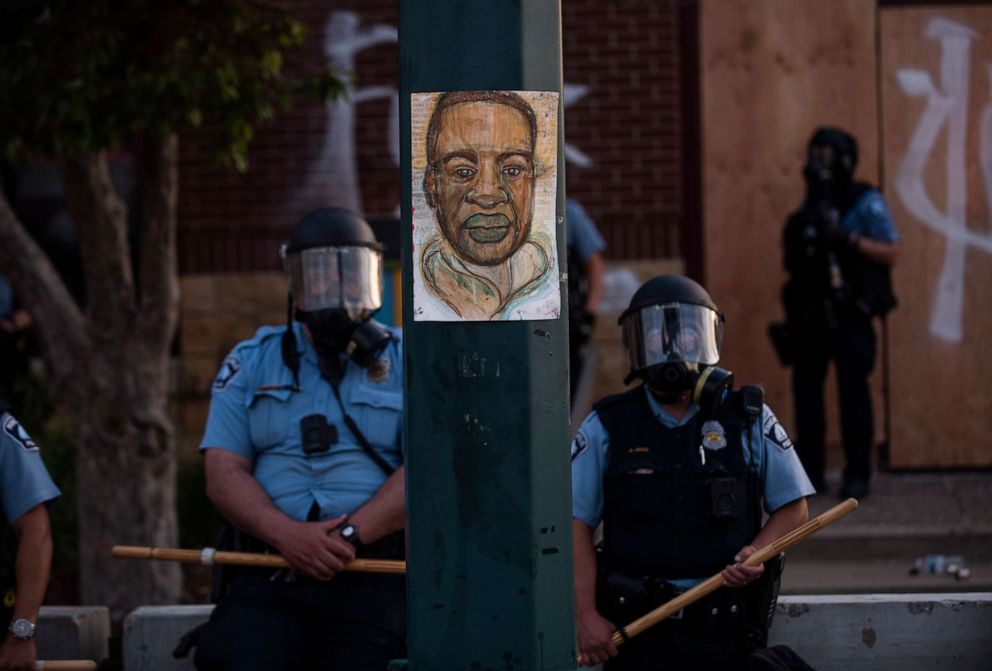
He said the video of a police officer kneeling on Floyd's neck for nearly nine minutes, as the Minnesota man called out that he couldn't breathe, was "sickening" and speaks to the importance of "empathy" in policing.
"One of the things that I was taught early on in law enforcement was anytime you have an interaction with any member of the public, treat them like your mom, your dad, your sister, your brother, your nieces or nephews," Tillman said, "because if you do that, you'll always be able to find empathy in your heart to just treat them like a human."
'I'm not about to work for the man'
Growing up, Tillman never wanted to become a police officer.
As a young African American living in Southern California, he experienced racial slurs and racial profiling while doing basic activities like searching for an apartment, attending a football game or stepping outside a party to take a phone call. He recounted several instances where white community members called police on him simply because they thought he looked "suspicious," and said he was often treated with hostility during interactions with law enforcement.
"As a young teenager and as a young adult, I started seeing that there were these racial biases that existed still even in the 20th century," he said, adding that "systemic racism" impacts all areas of American life, including policing.
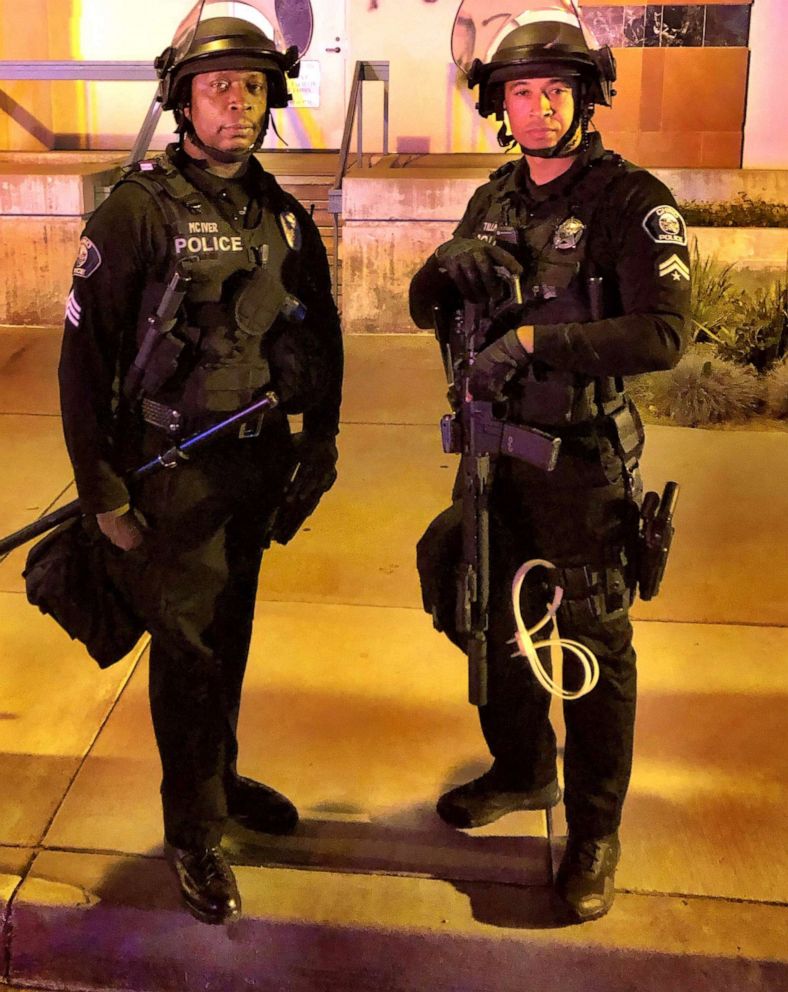
So, when his father's best friend, who was a police captain for many years, told Tillman that he would make a "great officer" and repeatedly recommended that he join the force, he was very hesitant.
"At the time, my mentality was like, nah, I'm not about to work for the man. I'm not going to be a pig. Because I had just been ingrained with all this stuff from social media," Tillman said.
But after months of reflection, he thought more about the possibility.
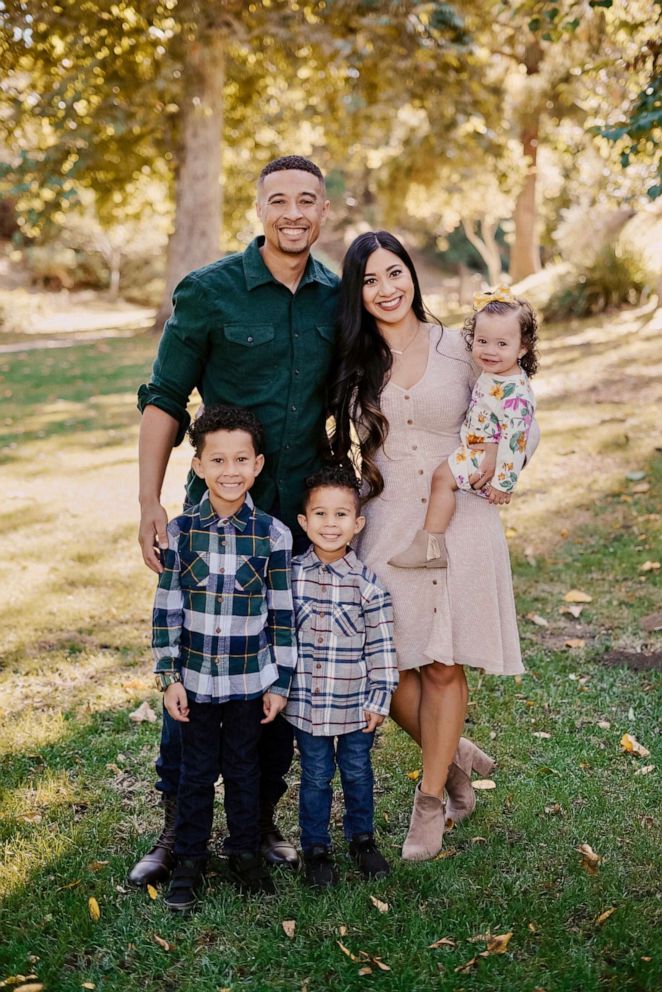
"I'm a big spiritual guy, so I prayed about it. I was like, well, God, if this is what you want me to do, let it be it. If not then it won't," he said.
He eventually decided to go through the training.
"And the door literally just flew open. You got to realize, like in a profession like this, you know, it's very, very hard to get hired," he said. "And so, I just flew through the process. I was like, maybe that's a sign … (it) just came naturally to me."
'Changing the perception of the badge'
Tillman, who is now 33, joined the City of Chino Police Department in 2013. A year later, with the support of his commanding officers and his police chief, he founded Breaking Barriers United.
"It was designed to bridge the gap between law enforcement and community, and it was based on humanizing officers, but at the same time changing the perception of the badge," Tillman said.
"I believe that I can support the thin blue line just as much as I can support Black Lives Matter, but I can do it from my own platform," he added.
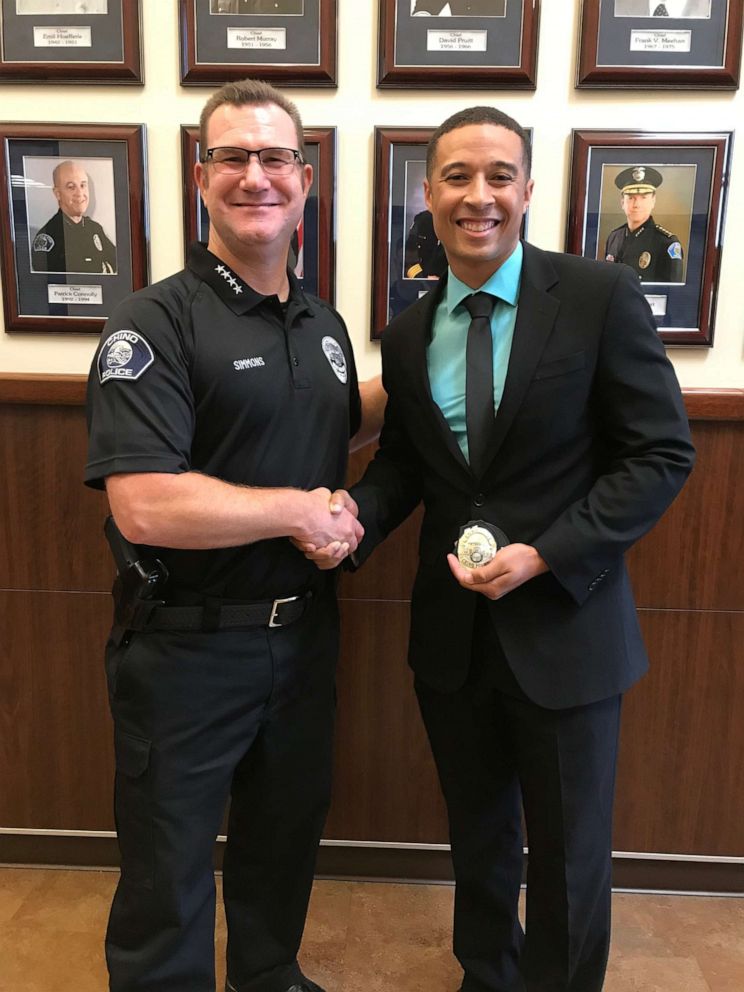
Chief Wes Simmons, who has been a part of the Chino Police Department for 25 years, said that the department is "very proud" of Tillman, adding that Breaking Barriers is helping build "trust" between the black community and police by connecting officers with the community and challenging "assumptions" about law enforcement.
"Those initial seeds planted in 2014 have helped us now, where we are in the midst of this unrest that's sparked because of Minnesota and we are able to pull back on those relationships that we maintained during that time," Simmons told ABC News.
He added that they have had some peaceful protests in Chino following the death of Floyd and Tillman spoke with young people demonstrating and was able to "connect" with them.
Asked what he learned over the past 6 1/2 years as a police officer, Tillman pointed to the importance of "diversifying" law enforcement and ensuring that agencies reflect the communities they serve. He said that part of the challenge is "a hard time recruiting minorities" because of a mistrust of police.
These issues were highlighted in the recommendations of the Obama administration's policing task force, which was assembled in 2014.
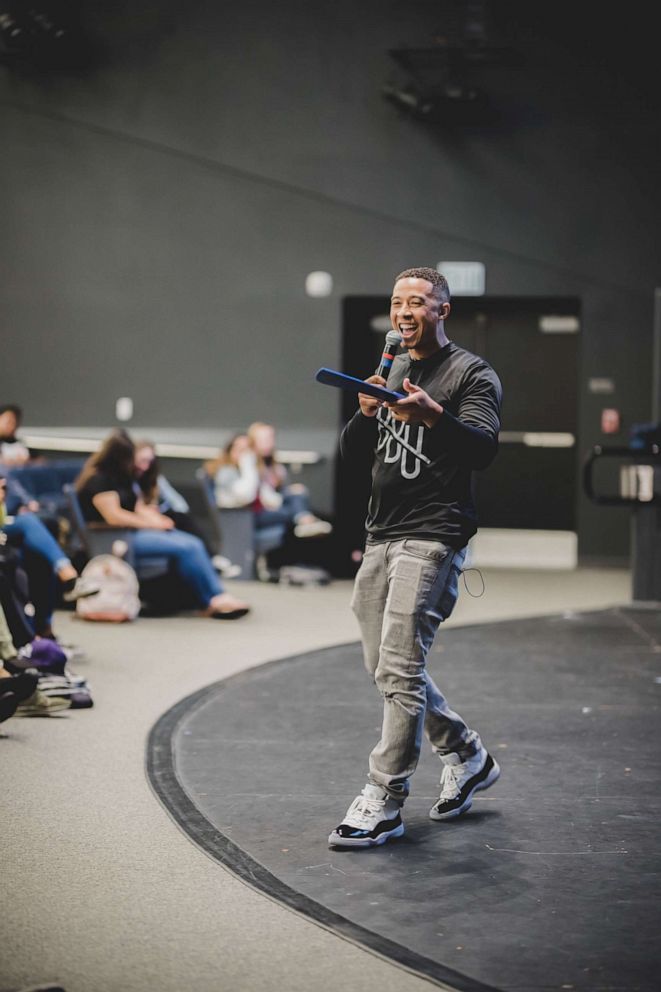
Police officers "have a lot of leeway" in how they choose to respond to a situation and this "discretion" is often shaped by "implicit biases that we naturally have developed over the years," Tillman said, which is why it is important for officers to not only learn about the communities they serve, but to also be a part of them.
According to a U.S. Department of Justice report, in 2016 about 71% of full-time sworn officers in local police departments were white, 13% were Hispanic and 11% were black. The percentage of Hispanic officers rose by 61% between 1997 and 2016, while the percentage of black officers "remained relatively constant."
Tillman is currently one of eight black officers in an agency of about 120, including a number of Hispanic officers. He said that he encouraged two of the black officers currently on the force to join.
"As the chief of police for the past nine months, I can't tell you how many young people I've interviewed to become police officers who specifically came to the Chino Police Department because they followed Ryan Tillman on social media," Simmons said.
'A moment of acknowledgement and empathy'
As police brutality protests increased over the past couple of weeks, a movement supported by some politicians and activists to "defund the police" has gained traction in some circles.
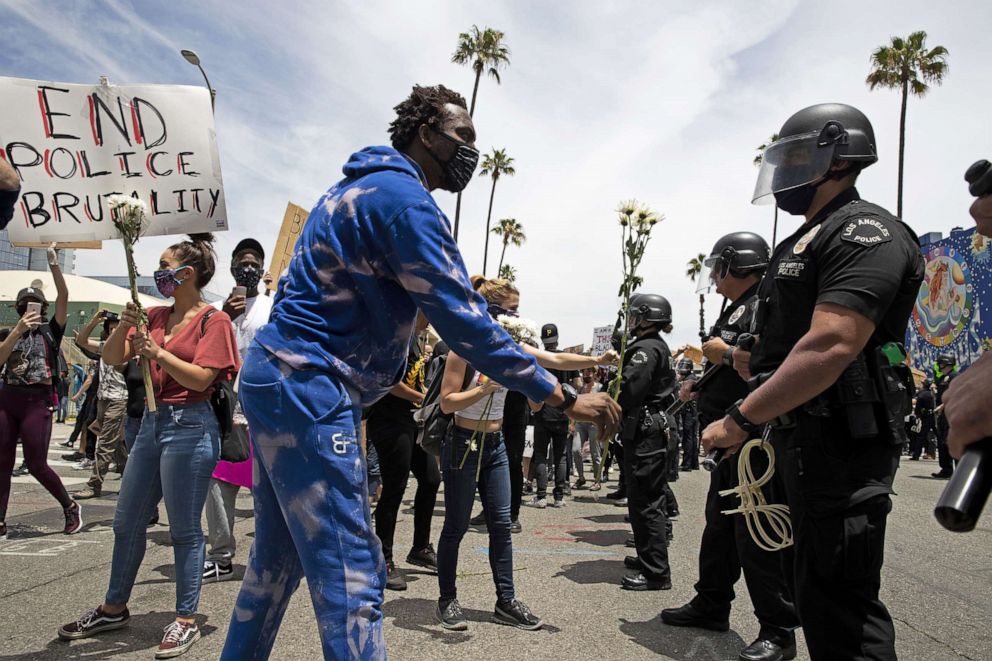
Tillman said that he understands that the "intent" of the movement to "defund the police" is to move resources to the community, but it will not solve the problem of systemic racism.
"The thing is, if you defund the police, then now you're going to remove resources in order to go out there and train officers better. If you defund the police, now they may not have the resources or the money, financial stability, to support doing more thorough background investigations on police officers," he said.
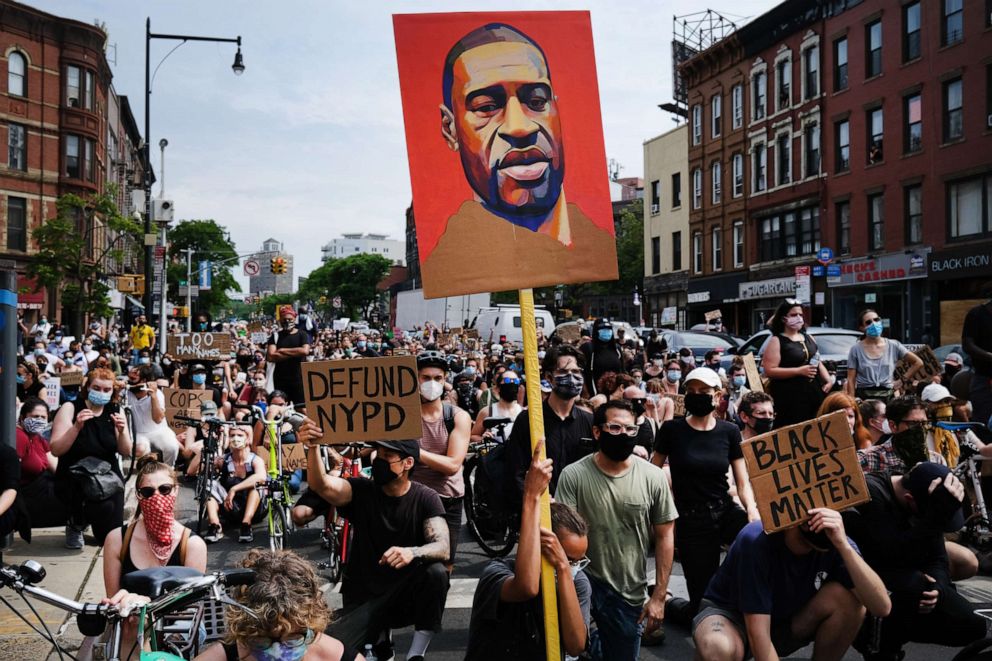
Outrage over the killing of Floyd has revitalized a nationwide debate over systematic racism in law enforcement.
Several Trump administration officials, including Attorney General Bill Barr and acting Department of Homeland Security Secretary Chad Wolf, have claimed that systematic racism does not exist in policing.
"To say that you've eradicated systemic racism from a country that was based on the systemic racism is a false claim … you can't eradicate a whole movement overnight," Tillman said, pointing to the legacies of slavery and Jim Crow.
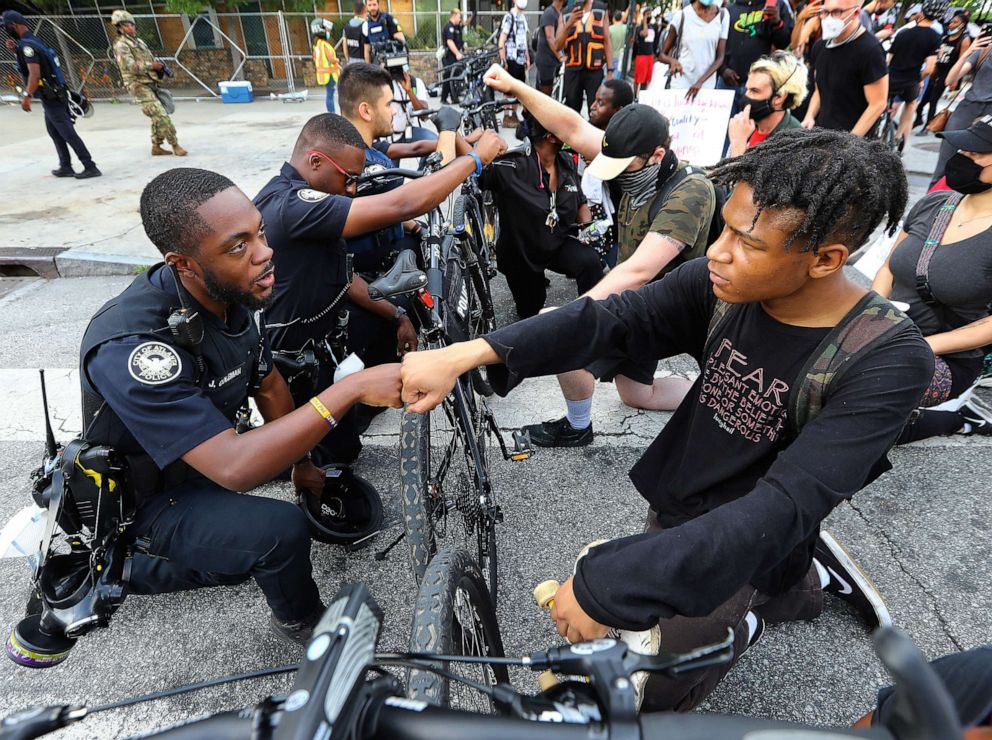
During the protests, some police officers and top brass have taken a knee in the streets alongside protesters in solidarity against the killings of unarmed black people.
Tillman, who also took a knee with protesters, said that for him, it was "a moment of acknowledgement and empathy" of the community's "emotional hurt" and a statement that he is "not as you guys are portraying me to be."
"It was almost a moment of vulnerability that I think the public needed to see," he said. "There was a moment of vulnerability for myself that I needed to express outwardly to the people."




